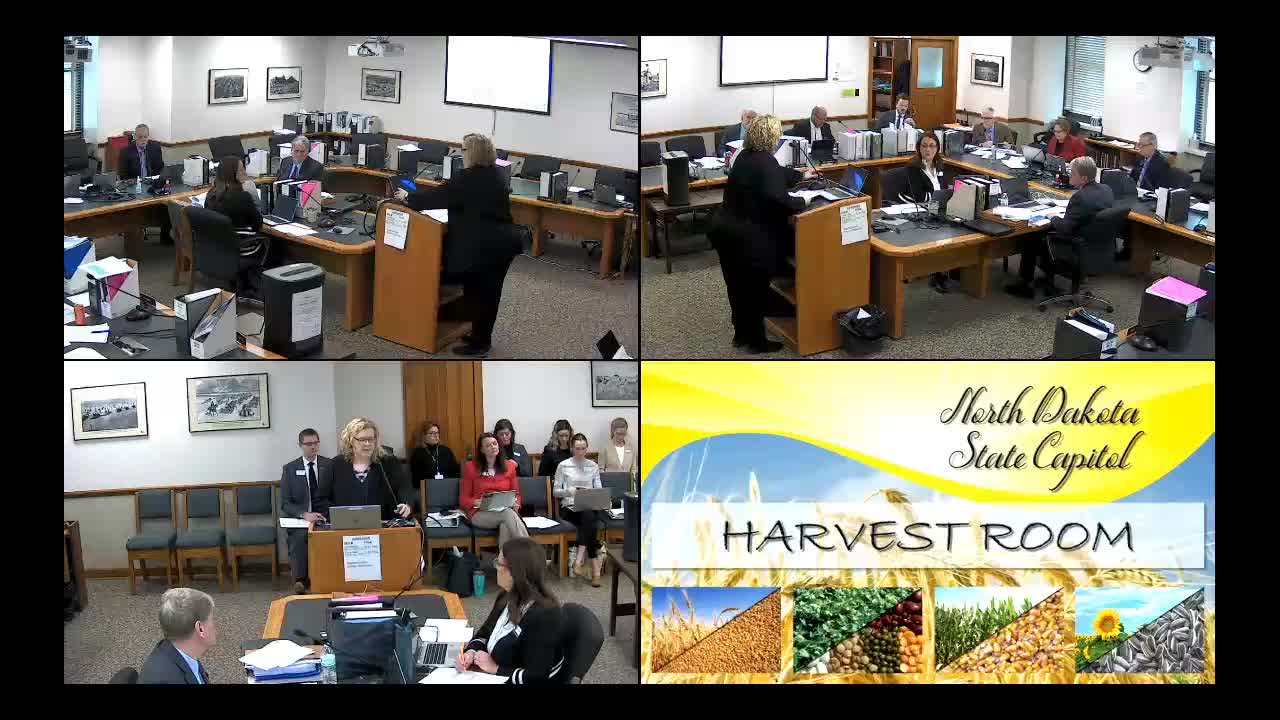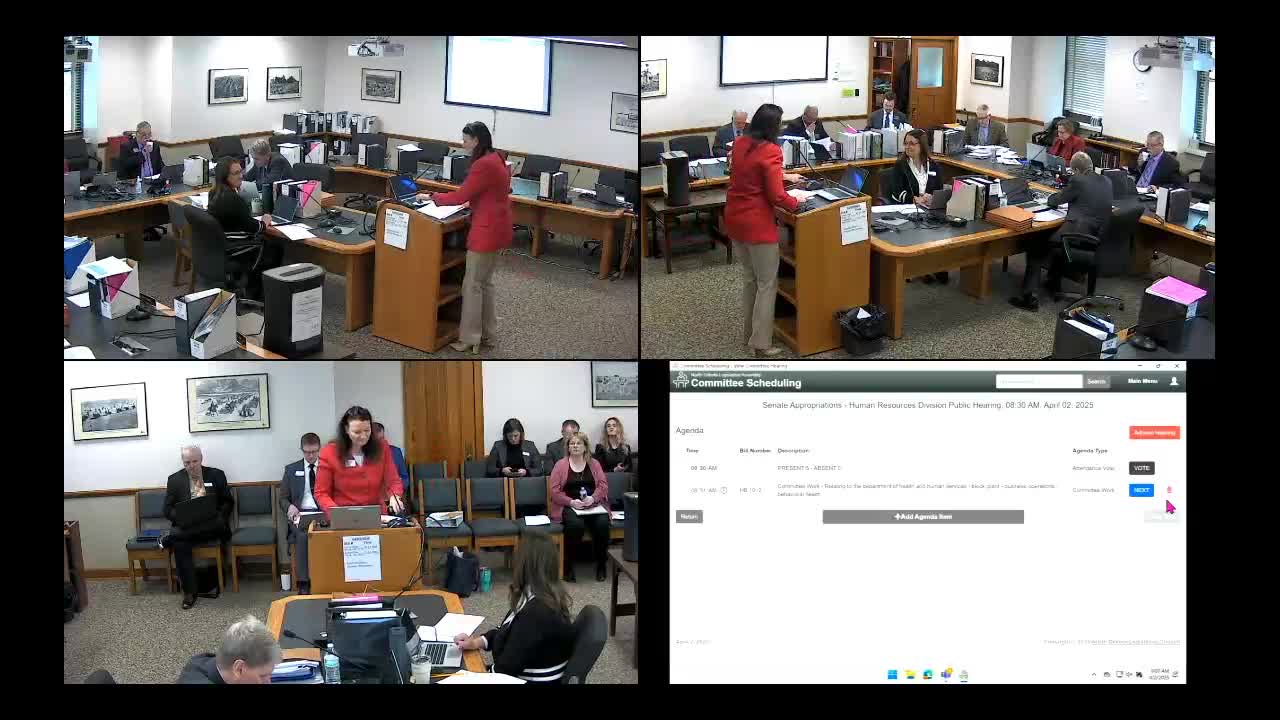Article not found
This article is no longer available. But don't worry—we've gathered other articles that discuss the same topic.

Lawmakers debate SUD voucher expansion, jail mental‑health payments and youth crisis pilots as HHS requests multiple program increases

HHS outlines $9.4M in COVID behavioral‑health awards ending; $6.2M unspent, contracts re‑prioritized

